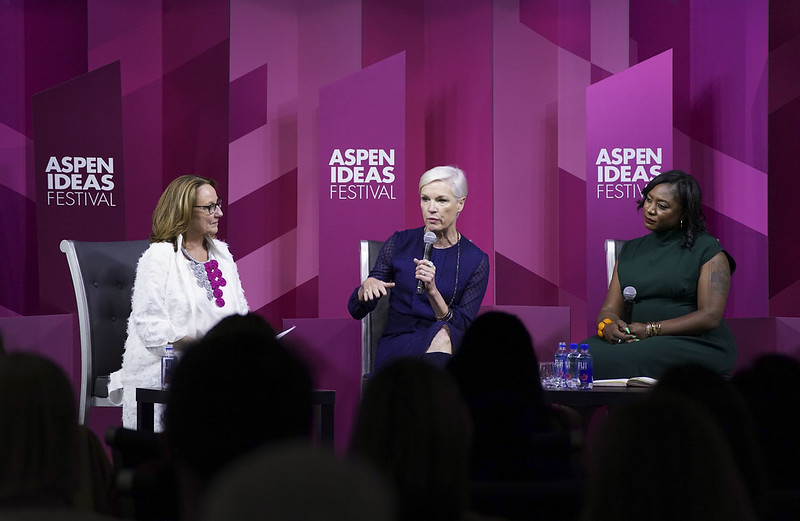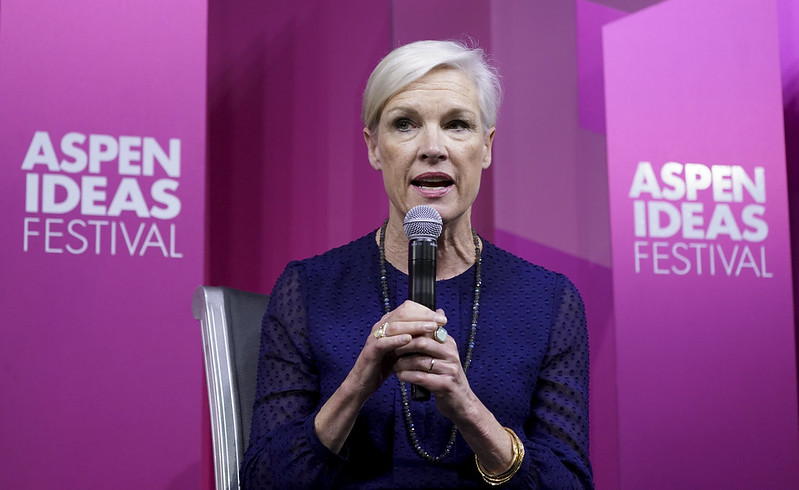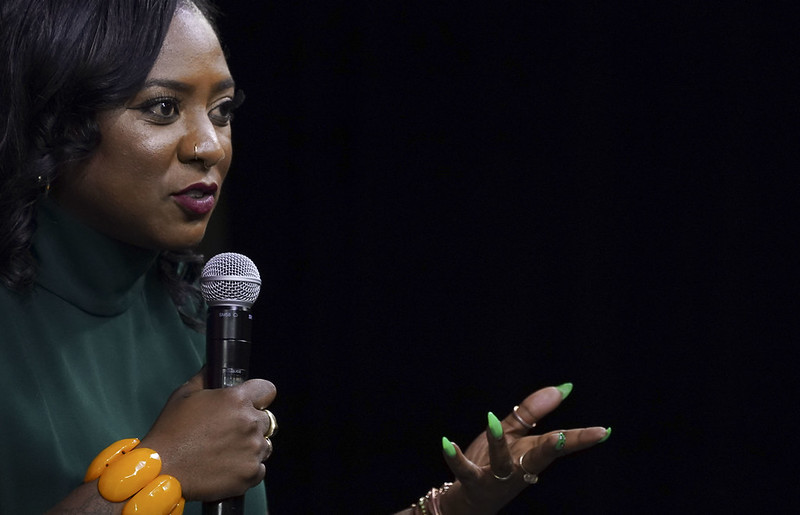
In the post #MeToo era, the potential to shift women’s political, economic, and philanthropic power is profound. How will this activism be harnessed to fundamentally change our nation’s course? Can a broader consensus in support of women’s issues be mobilized? Fundamental concepts of diversity and inclusion are being crafted in whole new ways by corporate leaders who are responding to cultural pressures and market opportunities. Where will this momentum for an inclusive and diverse agenda lead and who will lead it? In June 2019, a group of leaders met on the Aspen Ideas Festival stage to discuss these issues and more.
Women are the super majority in American society, yet their representation and influence in key sectors lag behind
Women constitute 41% of the labor force and 40% of primary breadwinners in households with children in the US. They also control 80% of consumer purchasing decisions. However, their representation and influence in key sectors still lag behind, and strategic intervention is needed.

“I think that our aspirations have to be higher than simply changing who is in the White House and again, on what terms…what would it really look like for us to have true gender equity in this country? Imagine what power that would unleash and how exciting that would be.”
Cecile Richards
Women’s empowerment, diversity, and inclusion are critical for productivity and profitability
Myla Calhoun, President of the Alabama Power Foundation, emphasized the importance of diversity and inclusion in leadership, noting that it’s a journey that requires patience, grace, and a lot of hard work: “…it’s not a straight line and it’s not necessarily artfully done. And I think that we have to give ourselves patience and grace to move through a process that is uncomfortable for everyone to get to the place where we reflect the populations that we serve. It’s hard work, but it’s work that is worth doing,” shared Milah.
She also highlighted the need to put policies in place within corporate environments that can shift behaviors and, consequently, mindsets.
“I think as leaders, those of us who are in the room, we have to show up and articulate that that is important for us to do,” Calhoun stated.
The fight for gender equality goes beyond women’s issues
The fight for gender equality is not limited to women’s issues; it’s about creating a society that values and respects all genders. This includes ensuring that the political landscape reflects the diversity of the country and addressing issues that directly impact women, such as healthcare, climate change, and economic fairness.

“We want more women running at every level. We want more gay and lesbian and bisexual and transgender folks running at every level. We want more immigrants running at every level — because that is who the country is.”
Alicia Garza
Garza also discussed the need for elected officials to truly listen to and work on behalf of the communities they serve.
“We are whole people, meaning I don’t get to walk out of my house each day and decide I’m not gonna be a woman today, I’m not gonna be Black today, I’m not gonna be queer today. I don’t get to do that. But I do get to demand that the people who represent me don’t try to look through me, but try to have a conversation with me about how to make my life better,” she stated.
As a rallying call to attendees, Garza directed them to hold Supermajority — and groups like them — accountable to organizing across all communities, to build an equitable movement that lifts all boats.
